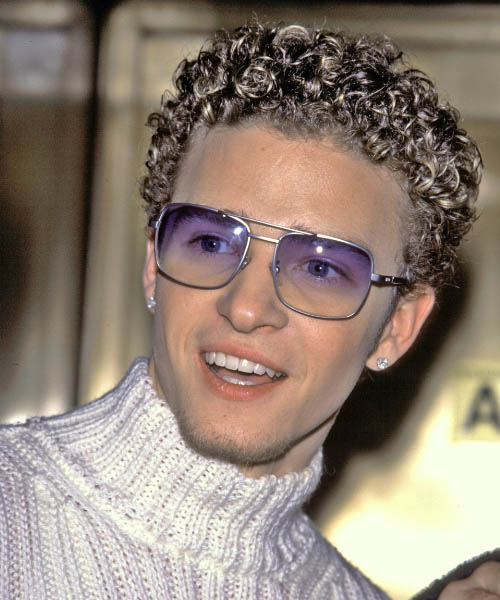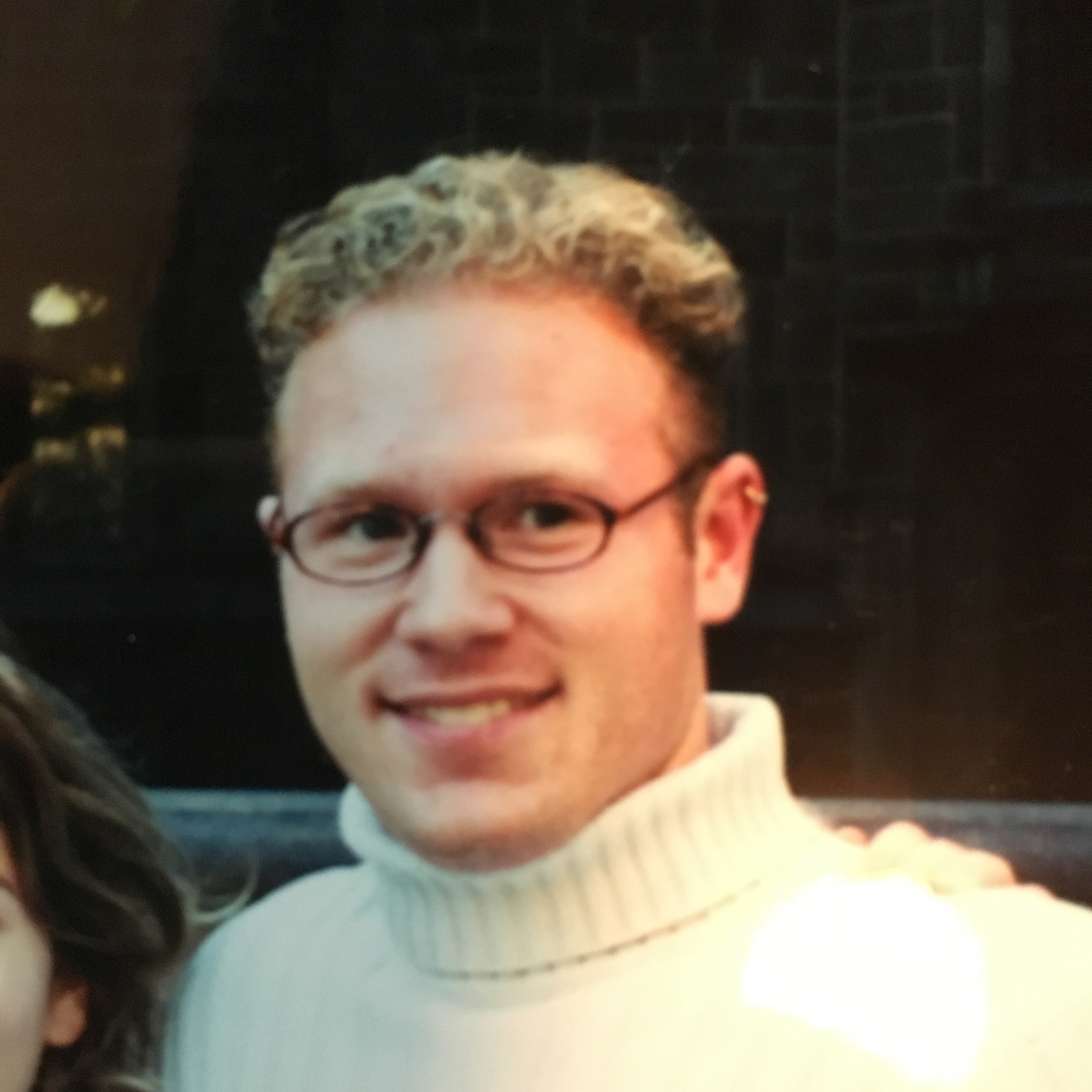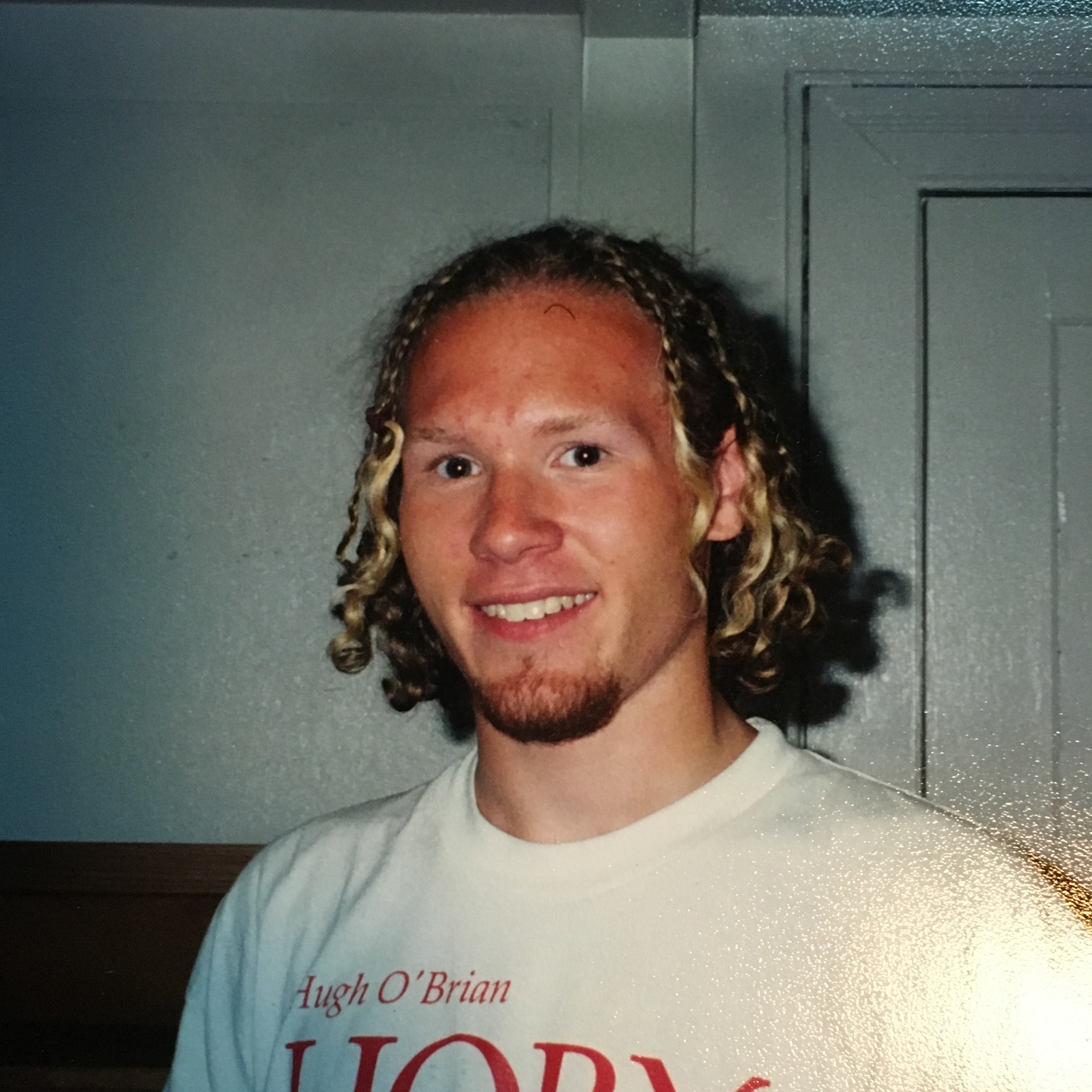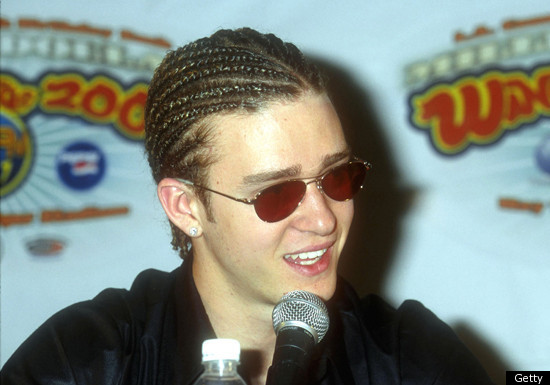Hi Justin Timberlake. It’s me, Justin Cohen. You probably don’t know that I exist, but I certainly know about you. I think it’s time for us to have a chat.
You and I were born the same year, with the same name, with the same skin color, and with strikingly similar hair. Here’s us wearing identical white turtleneck sweaters (though yours was probably more expensive), sporting similarly ill-advised earrings:
You, admittedly, are a LOT more attractive than I am. You also are better at both singing and dancing, while I am a little better at writing and thinking about social justice.
Our similarities don’t stop there, Justin Timberlake. We were born in the same country, one with the same history of conferring shitloads of unearned privilege upon people with our particular skin color. That history relied upon the appropriation of Black lives and culture. For example, here are pictures of both of us wearing hairstyles that we appropriated directly from people of color. While we were both young and ignorant when we did this, I was not the most visible member of an internationally acclaimed musical group. Nobody would have seen this picture of me if I hadn't decide to share it, but I didn’t think I could have “the talk” with you unless I shared my own historical racial ineptitude:
Justin, let’s admit it, we knew we were appropriating Black culture when we wore our hair that way. In my case, braiding my hair was a flight of fancy during a summer vacation, and I was ridiculed for it, by my family and friends. Your case is a little different. You established an entertainment career on art forms created by the Black community and won oodles of both Grammy and Emmy awards for that career.
You clearly are aware of Blackness and Black culture. It seems, though, that your appreciation may have stopped at appropriation. That’s the only way I can explain the series of tweets you sent in response to Jesse Williams’s brilliant speech at the BET Awards, including this one:
Justin Timberlake, while you and I may be the same – the gaps in both our physical attractiveness and relative levels of commercial success notwithstanding – you and Black America are not the same. At all. While Black folks in this country do not owe it to you to explain why you are so wrong about this, I think it is incumbent upon White folks to educate their brethren. As such, I’m taking one for the team and confronting you, although I always had hoped we would meet under more cordial circumstances, like maybe a lip-sync contest. I want you to think about three things:
1. Based on everything we have in common, I think I can assume that you were raised under the pernicious – and uniquely 1980s – notion of “colorblindness.” Colorblindness only applies to white people that were raised during that specific period of time. At no point, even in the 1980s, did people of color experience colorblindness. In fact, the racialized experiences of our Black peers who lived through the era of colorblindness were exacerbated by the fact that we – i.e. White people – were so committed to the idea that race didn’t exist anymore. Shitty, racially motivated injustices were happening all around us, Justin, but because our culture had settled on raising children as “colorblind,” we ignored those things and pretended that racism was something that “happened in the past.”
2. Remaining colorblind is way easier than accepting your privilege. That’s why Ta-Nehisi Coates calls us the dreamers; this is not a compliment. When I realized that my childhood of colorblindness was an illusion, I had a very hard time letting go of that fantasy. I was emotionally attached to the idea that I have lived a childhood free of prejudice. That fantasy is hard to dismiss not just because of our emotional attachment to it, but also because that fantasy comes with nice things like: a sense of superiority, preferential treatment from public officials, the freedom to drive while being White, not being killed by police officers, and better chances of living a life free of poverty. While the history of this country is intertwined with an ongoing struggle to erase that unearned privilege, White folks benefit everyday from the preservation of the fantasy. Someone recently took that fantasy all the way to the Supreme Court, rather than give it up, that’s how powerful it is. The faster you give up the idea of colorblindness, Justin Timberlake, the better off we’ll all be.
3. White people should talk to other white people about racial injustice; they shouldn’t hide behind false equivalence:
Yeah, that’s literally what you said, Justin Timberlake. As a White person, particularly one with unusual access to the media, you could be using your perch to educate other White folks about racism. I also wish that we lived in a post-racial society, but there is not one shred of evidence that we live in anything close to a post-racial world. Until we live in that world, it would be helpful if our most visible White folks did not actively perpetuate a misunderstanding about the world in which we live.
Justin Timberlake, I know that parts of this note were a little snarky, but I hope you take this as I intended it. We need you in the fight for racial justice. There is a long history of White folks who stood shoulder-to-shoulder with leaders of color in the struggle for true equity. There also is a counter-history of White entertainers who benefitted from appropriating the artistic creations of the Black community without reciprocating. It’s your choice, and I hope you make the right one.
Sincerely,
Justin Cohen



